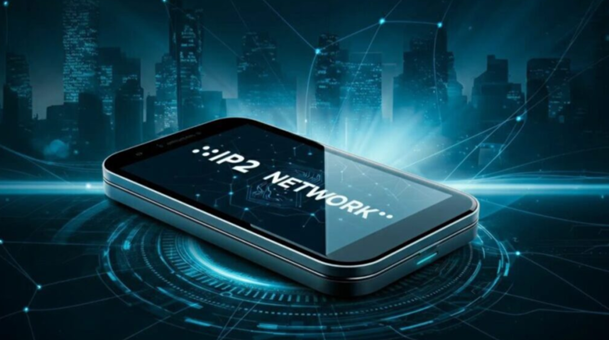Introduction to IP2 Network
IP2 Network The internet is constantly evolving, and with each generation, we see improvements in speed, security, and scalability. The IP2 Network is the next frontier, promising a significant leap from the traditional IP frameworks like IPv4 and IPv6. Let’s break it down in simple, human terms.
What is the IP2 Network?
The IP2 Network is a next-generation internet protocol that aims to overcome the limitations of its predecessors. It’s designed to deliver ultra-fast, secure, and scalable internet connections across a wide range of devices and networks.
Think of IP2 as the upgraded highway system for internet traffic—faster lanes, better traffic control, and enhanced safety features.
The Evolution from IPv4 and IPv6 to IP2
To understand IP2, it helps to look back:
-
IPv4 gave us the first structured internet with limited IP addresses.
-
IPv6 solved the address exhaustion problem by providing virtually unlimited IPs.
-
IP2 goes beyond addressing—it focuses on performance, security, and adaptability for emerging technologies like IoT, blockchain, and AI.
Key Features of the IP2 Network
High-Speed Data Transmission
IP2 is engineered for speed. It minimizes packet loss, reduces latency, and ensures that data travels at lightning-fast rates, even in congested networks.
Advanced Security Protocols
Security is at the heart of IP2. Unlike older protocols that required external firewalls and security layers, IP2 integrates security features directly into its core.
Scalability and Flexibility
IP2 can easily scale to accommodate billions of devices—from smartphones to smart refrigerators—without the bottlenecks seen in previous systems.
How Does IP2 Network Work?
IP2 Address Structure
IP2 introduces a more intelligent and flexible addressing system. It’s not just about numbers; the structure includes layers for:
-
Device type
-
Security clearance
-
Network priority
This layered system helps optimize traffic management and security protocols.
Data Routing in IP2
Data packets in IP2 find the shortest, fastest, and safest route dynamically. Imagine a GPS that constantly recalculates the best path based on real-time traffic.
IP2 vs. Traditional Networks
Comparison with IPv4
-
IPv4: Limited addresses, slower routing, less secure
-
IP2: Unlimited scalability, high-speed routing, built-in security
Comparison with IPv6
-
IPv6: Solved address shortages but still relies on external security layers
-
IP2: Integrated security and dynamic routing for better efficiency
Benefits of the IP2 Network
Enhanced Connectivity
IP2 provides seamless connectivity, even across complex networks, making dropped signals and connection delays a thing of the past.
Improved Security
With end-to-end encryption, device authentication, and data integrity checks, IP2 offers superior protection against modern cyber threats.
Better Resource Management
IP2 intelligently balances network loads, ensuring optimal performance even during peak usage.
Challenges and Limitations of IP2 Network
Deployment Complexity
Shifting to IP2 requires major infrastructure upgrades. Many existing devices and systems need to be retrofitted or replaced.
Compatibility Issues
Legacy systems may struggle to communicate with IP2 without specialized adapters or gateways.
IP2 Network Use Cases
Smart Cities
IP2 is perfect for smart traffic systems, intelligent lighting, and interconnected public services that require real-time data exchange.
Internet of Things (IoT)
With billions of IoT devices expected to come online, IP2’s scalable architecture can handle the load with ease.
Financial Networks
IP2’s low-latency and high-security features make it ideal for fast-paced financial transactions and secure digital banking.
Why IP2 Network Matters for Future Technology
The future is connected—cars, homes, cities, even our bodies (through wearable tech). IP2 is the backbone that can support this hyper-connected world reliably and securely.
The Role of IP2 in Decentralized Systems
IP2’s structure supports decentralized models, reducing single points of failure. This is a game-changer for blockchain, peer-to-peer networks, and decentralized finance (DeFi).
IP2 Network and Blockchain Integration
IP2 can work seamlessly with blockchain platforms, enabling faster transaction confirmations, secure data sharing, and improved scalability for decentralized apps.
Security Measures in IP2 Network
Encryption Techniques
IP2 employs multi-layer encryption protocols that protect data both at rest and in transit.
Threat Mitigation
Real-time threat detection, packet inspection, and anomaly-based defense mechanisms are part of IP2’s DNA.
The Future of IP2 Network
Global Adoption Potential
Countries and tech giants are exploring IP2’s potential, which could make it the global standard in the next decade.
Technological Advancements on the Horizon
With AI, quantum computing, and advanced cryptography on the rise, IP2 is expected to evolve rapidly to meet these demands.
Conclusion
The IP2 Network represents the next significant evolution in how we connect, communicate, and conduct business online. It promises faster speeds, higher security, and unmatched scalability. While its global adoption will take time and effort, the future it promises is undeniably exciting. Whether you’re a tech enthusiast, a business leader, or just an everyday internet user, the IP2 Network is something to watch closely. The next generation of the internet is already knocking at our doors.
FAQs
What is IP2 Network used for?
The IP2 Network is used for fast, secure, and scalable data transmission across modern internet systems, supporting technologies like IoT, blockchain, and smart cities.
How is IP2 different from IPv4 and IPv6?
IP2 goes beyond simple address allocation by integrating advanced security, dynamic routing, and real-time traffic management directly into its core.
Is IP2 Network secure?
Yes, IP2 is designed with built-in, multi-layer security protocols, including encryption and real-time threat detection.
Can IP2 Network support IoT devices?
Absolutely! IP2’s scalable structure is tailor-made to handle billions of IoT devices simultaneously without slowing down.
What challenges does IP2 Network face?
The biggest challenges include deployment complexity, compatibility with legacy systems, and the need for substantial infrastructure upgrades.

